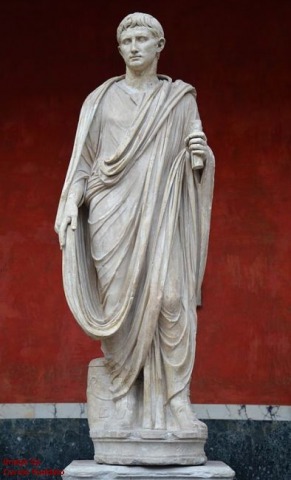
Query:
As I read Romans 13:1-7, God’s institution of human government is clear, but the apparent autonomy given to the authorities to judge what is right and what is wrong seems oddly detached from any kind of divine guidance. So I am wondering if the Apostle Paul’s statements presuppose that the authorities will be limited by natural law. If so, would it have been Cicero's natural law or Stoic natural law that he would have in mind -- or some form of Jewish natural law?
Reply:
Was he assuming natural law? In a word: Yes! The passage to which you allude is states “Let every soul be subject to the governing authorities. For there is no authority except from God, and those that exist have been instituted by God.” The tradition does not take this statement to require unquestioning obedience, for with equal authority, on an occasion when the local authorities unjustly commanded the Apostles to stop preaching about the risen Christ, St. Peter responded, “We must obey God rather than men.” If God really is the source of human authority, then human magistrates have no authority to exceed what God has committed to them, and they are charged to act justly. So we should read the statement “Let every soul be subject to the governing authorities” as meaning that every soul should be subject to them in matters that lie within their authority for the common good.
There is only one natural law, so I take your second question, about Cicero, the Stoics, and the Jews, to be whether St. Paul’s statement commits us to a particular theory of natural law. He doesn’t say so, but it is clear from various other statements he makes that natural law is both truly natural, that is, based on the human creational design and knowable by the human mind, and truly law, that is, capable of laying genuine duties on our conscience. That obviously places limits on what kind of natural law theory we could adopt.
The great rabbinical commentators did teach something that we would call natural law, although they did not use that term for it. Its first great expression in rabbinical commentary is the tradition of the seven laws given to the sons of Noah. Considering that “sons” means “descendents,” that means that it was given not just to the Jews, but to all human beings. Its second great expression is the rabbinical project of explaining the “reasons of the law.” For example, Rabbi Hanina states concerning the commandment to administer justice that “were it not for the fear of it, a man would swallow his neighbor alive.” Plainly, then, God’s basic moral will for us is not arbitrary and incomprehensible, but something the human mind can recognize as right.
More about the relation between natural and revealed law